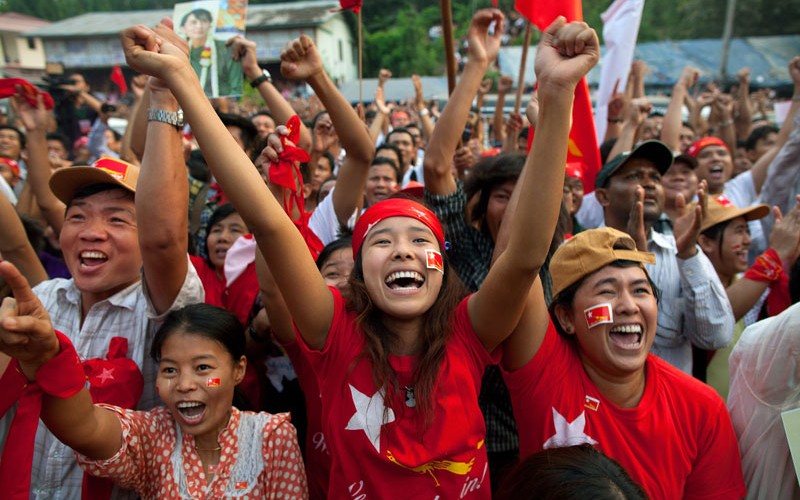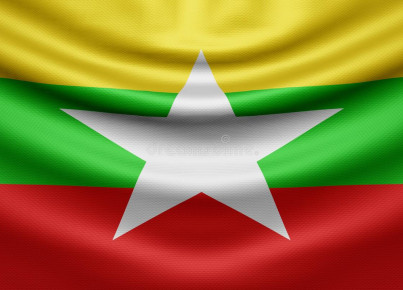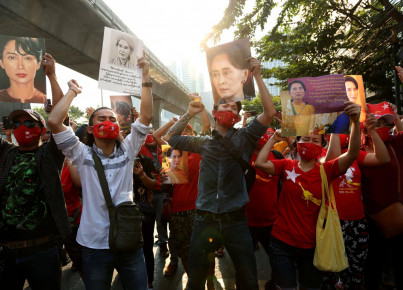The shadow of Covid-19 on the 2020 general elections, between minority rights and ongoing conflicts
On November the 8th the general parliamentary elections will take place in Myanmar. Five years ago, in 2015, the country held its first democratic elections, after decades of military dictatorship, which determined the victory of the National League for Democracy (NLD), lead by Aung San Suu Kyi, Nobel prize and pro-democracy icon.
However, despite the landslide success in 2015, the NLD hasn’t been able to make significant changes to the Burmese political system and has failed in its intent to amend the Constitution. Indeed, a qualified majority of 75% of parliamentarians is needed to modify the constitutional charter, and at the moment the military holds 25% of the seats and three key ministries (Foreign Affairs, Internal Affairs and Defence). As a consequence, Suu Kyi’s government has failed to achieve its reform goals.
In addition, in order to deny Suu Kyi the Presidency, the military has included a provision in the Constitution according to which the President cannot have a spouse or children in possession of foreign citizenship. Unfortunately, this is precisely the case of the NLD leader. In the past years, Suu Kyi has partially avoided the obstacle by creating the role of State’s Councillor, which she has held so far, but the possibility of accessing the Presidency of Myanmar remains excluded for her.
Almost certainly the next elections, which will take place in a tense context due to Covid-19 security measures, will again see the victory of Aung San Suu Kyi's NLD which, however, could lose the absolute majority that currently allows the party to govern alone. According to pre-election polls, smaller parties, representing specific minorities, should increase their seats in Parliament and force the NLD into a government coalition. Although Aung San Suu Kyi and her party still remain very popular among the Buddhist majority, known as Bamar, many analysts agree that their consensus has shrunk among the many and diverse minor ethnic groups scattered across the country and which cover over 40% of the population. Indeed, it should be pointed out that Myanmar is affected, perhaps more than other Southeast Asian nations, by the different geographical and cultural convergences that characterize the social fabric of the country. These elements have conditioned the formation of national unity, which is particularly difficult, both from an ethnic, political and social point of view.
Moreover, the spread of the new coronavirus, which could have unpredictable effects on the results, also hangs on the election of November 8th. According to some observers, the restrictions on rallies are likely to benefit large parties such as the NLD and the military-backed Union Solidarity and Development Party (USDP). However, much will depend on how Myanmar handles the spread of the virus in the weeks to come. Certainly, however, the combination of strict anti-Covid provisions, ethnic conflicts and poor monitoring by international observers presents questions about the regularity of the electoral process in Myanmar.
The current opposition and the military themselves are even trying to postpone the elections, but Suu Kyi worries that accepting this request would be perceived as a sign of weakness, an evidence of defeat towards the pandemic. Furthermore, part of the population cannot access voting procedures. Mostly suffering from this condition are the Rohingya, a Muslim group located in the north of the country, in addition to the thousands of citizens residing in conflict zones, who will hardly be able to go to the polling stations. A complex situation that nevertheless presumes the victory of the NDL, both for its past history and for the privileged use of national media.
What, then, are the prospects for Myanmar after the elections? The hostilities between ethnic groups are by no means over and a possible way forward to ensure greater stability in the country could be the administrative decentralization, in addition to a strengthening of the protection policies for the minorities and the cultural differences of the peoples residing in the national territory. In between the global pandemic and internal tensions, there is no shortage of difficulties, and certainly these elections will play a crucial role in determining Myanmar's near future.
By Emilia Leban






